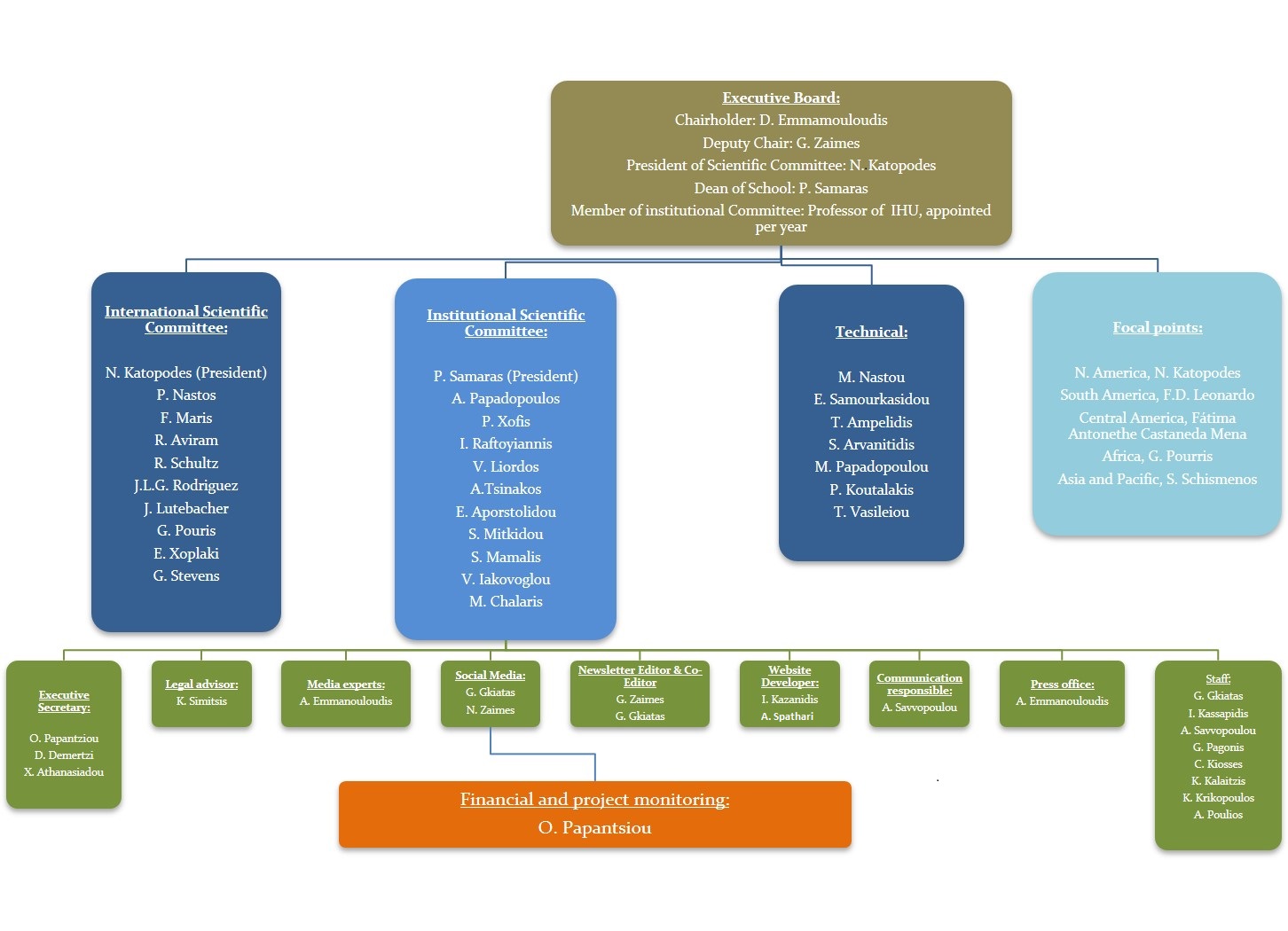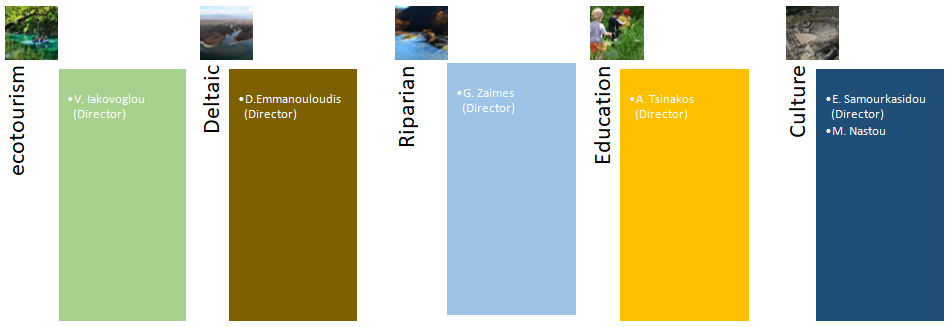16.4.2022 Δελτίο Τύπου Θέμα:Εκδήλωση στο Γραφείο του Ευρωπαϊκού Κοινοβουλίου στην Ελλάδα, για την ένταξη του Παρθένου Δάσους Φρακτού Παρανεστίου, στον κατάλογο των Μνηµείων Παγκόσµιας Κληρονοµιάς της UNESCO (World Heritage List) - Παγκόσμια Ημέρα Πολιτιστικής Κληρονομιάς Με μεγάλη επιτυχία πραγματοποιήθηκε η ενημερωτική εκδήλωση στο Γραφείο του Ευρωπαϊκού Κοινοβουλίου στην Ελλάδα, για την ένταξη του Παρθένου Δάσους Φρακτού Παρανεστίου, στον κατάλογο των Μνηµείων Παγκόσµιας Κληρονοµιάς της UNESCO (World Heritage List). Η εκδήλωση πραγματοποιήθηκε με αφορμή τον ορισμό της 18ης Απριλίου από την UNESCO και το Διεθνές Συμβούλιο Μνημείων και Τοποθεσιών...
Με μεγάλη χαρά σας ανακοινώνουμε, ότι μετά από προσπάθεια πολλών μηνών και με σκληρή δουλειά που έγινε από πολυμελή ομάδα συνεργατών της Έδρας, υποβλήθηκε σήμερα στην Επιτροπή του Παγκόσμιου Δικτύου Γεωπάρκων της UNESCO στο Παρίσι, ο πλήρης φάκελος υποψηφιότητας της Νισύρου για την ένταξή της στο Παγκόσμιο Δίκτυο Γεωπάρκων της UNESCO. Θερμές ευχαριστίες στην Ηφαιστειολόγο, Αναπληρώτρια Καθηγήτρια του ΕΚΠΑ, Δρ. Ε. Νομικού, στον Μετεωρολόγο – Κλιματολόγο, Καθηγητή του ιδίου Πανεπιστημίου, Π....
Οι πυρκαγιές και η επόμενη ημέρα μέσα από τα μάτια ενός δασολόγου. Δημήτρης Εμμανουλούδης Δασολόγος – Υδρολόγος, Καθηγητής του Τμήματος Δασολογίας και Φυσικού Περιβάλλοντος στο Διεθνές Πανεπιστήμιο της Ελλάδος. EUROKINISSI .10 Αυγούστου 2021 - Στιγμιότυπο από την πυρκαγιά στην Βόρεια Εύβοια Με την Β. Εύβοια ακόμη στις φλόγες και με την φράση του Ισοκράτη «Μηδενί συμφορά ονειδίσεις, κοινή γαρ η τύχη και το μέλλον αόρατον», να ισχύει για όλους τους κατοίκους της Χώρας, και όχι μόνον γι’ αυτούς των περιοχών που ήδη επλήγησαν (Έχουμε δυστυχώς ακόμη μπροστά μας τα 2/3 του Αυγούστου και ολόκληρο τον Σεπτέμβριο), γίνεται προσπάθεια μέσα από...
"Η Επίδραση των Καιρικών Φαινομένων στην Έκβαση Μαχών και Ναυμαχιών στα Χρόνια της Ελληνικής Επανάστασης (1821 -1829)." Διαδικτυακή Επιστημονική Παρουσίαση στο πλαίσιο του εορτασμού των 200 χρόνων από την Ελληνική Επανάσταση αλλά και της Παγκόσμιας Ημέρας Περιβάλλοντος. Πατώντας εδώ μπορείτε να παρακολουθήσετε την διαδικτυακή ημερίδα στο κανάλι της έδρας στο YouTube. Διοργάνωση: ▶️Προγράμματα Μεταπτυχιακών Σπουδών «Άνθρωπος και Νερό» ▶️«Ανάλυση και Διαχείριση Φυσικών και Ανθρωπογενών Καταστροφών» του Διεθνούς Πανεπιστημίου της Ελλάδος ▶️Πανεπιστημιακή Έδρα της UNESCO Con – E – Ect, του...
Στο πλαίσιο του εορτασμού των 200 χρόνων από την Ελληνική Επανάσταση αλλά και της Παγκόσμιας Ημέρας Περιβάλλοντος, σας προσκαλούμε στην διαδικτυακή επιστημονική παρουσίαση "Η Επίδραση των Καιρικών Φαινομένων στην Έκβαση Μαχών και Ναυμαχιών στα Χρόνια της Ελληνικής Επανάστασης (1821 -1829)" που διοργανώνουν από κοινού τα Προγράμματα Μεταπτυχιακών Σπουδών «Άνθρωπος και Νερό» και «Ανάλυση και Διαχείριση Φυσικών και Ανθρωπογενών Καταστροφών» του Διεθνούς Πανεπιστημίου της Ελλάδος και η Πανεπιστημιακή...
ΠΡΟΣΚΛΗΣΗ ΣΕ ΔΙΑΔΙΚΤΥΑΚΗ ΗΜΕΡΙΔΑ ΜΕ ΘΕΜΑ «ΒΙΩΣΙΜΗ ΔΙΑΧΕΙΡΙΣΗ ΥΔΑΤΙΝΩΝ ΠΟΡΩΝ ΚΑΙ ΠΑΡΟΧΘΙΩΝ ΠΕΡΙΟΧΩΝ ΤΟΥ ΔΗΜΟΥ ΔΡΑΜΑΣ» Είμαστε στην ευχάριστη θέση να σας ανακοινώσουμε ότι στα τέλη Ιουνίου θα ολοκληρωθεί το υποέργο «Παρακολούθηση και Αξιοποίηση των Παρόχθιων Περιοχών Δήμου Δράμας» που έχει αναλάβει η ερευνητική ομάδα του εργαστηρίου Γεωμορφολογίας, Εδαφολογίας και Παρόχθιων περιοχών (GERi Lab) και η Έδρα UNESCO Con-E-Ect του τμήματος Δασολογίας και Φυσικού Περιβάλλοντος στο Διεθνές Πανεπιστήμιο Ελλάδος (ΔΙΠΑΕ). Το υποέργο είναι μέρος των Δράσεων του έργου...
Στόχος η ένταξη στα μνημεία φυσικής κληρονομιάς της UNESCO «Υπάρχουν 3 Παρθένα Δάση ενταγμένα αυτή τη στιγμή παγκοσμίως, και φιλοδοξούμε το δικό μας να είναι το τέταρτο και το πρώτο της χώρας μας»
Ολοκληρώθηκε με επιτυχία και παραδόθηκαν οι προτάσεις διαχείρισης και ανάπτυξης της περιοχής ΕΣΚΗ ΚΑΠΟΥ του Δήμου Καβάλας, υπό το πρίσμα καινοτόμων τεχνικών και πρακτικών, από την επιστημονική ομάδα της Έδρας UNESCO Con-E-Ect. Πρόκειται ένα ολοκληρωμένο έργο, μια μελέτη σκοπιμότητας ουσιαστικά που αφορούσε μια μεγάλη έκταση 10.000 και πλέον στρεμμάτων με την επωνυμία ΕΣΚΗ ΚΑΠΟΥ που ανήκει στην Δημωφέλεια του Δήμου Καβάλας και βρίσκεται ανατολικά της πόλης της Καβάλας. Το ΕΣΚΗ ΚΑΠΟΥ...
Διεθνές συμπόσιο στα πλαίσια της Ελληνικής Προεδρίας στο Συμβούλιο της Ευρώπης// Διατηρώντας το κοινό μας Μέλλον: Νέες Προσεγγίσεις στη Διαχείριση Πολιτιστικής Κληρονομιάς και την Περιβαλλοντική Προστασία /// Ελληνική Προεδρία της Επιτροπής Υπουργών του Συμβουλίου της Ευρώπης Ελληνική Εθνική Επιτροπή για την UNESCO/// Με μεγάλη επιτυχία και πολλές συμμετοχές από όλο τον κόσμο, πραγματοποιήθηκε Διεθνές Συμπόσιο με θέμα «Διατηρώντας το κοινό μας Μέλλον – Νέες Προσεγγίσεις στη Διαχείριση...
UNESCO_Chair_Con-E-Ect_presented_at_the_Med2020_conference.pdf
This project that is in progress, will monitor and utilize the riparian areas of Drama Municipality. It is being implemented by the Department of Forestry and Natural Environment, International Hellenic University (IHU) and the UNESCO Chair Con-E-Ect. The Project Manager is George Zaimes who is the Deputy Chair of Con-E-Ect and an Assistant Professor with the Department of Forestry and Natural Environment. It is co-financed by the Eastern Macedonia and Thrace Region NSRF with the total amount of...
Σας ενημερώνουμε ότι έχει ξεκινήσει η διαδικασία υποβολής αιτήσεων για εγγραφή στο ΠΜΣ "Άνθρωπος και Νερό" (Man and Water). Οι αιτήσεις μπορούν να υποβάλλονται ηλεκτρονικά στο παρακάτω link: http://manwater.teiemt.gr/?page_id=1024 Υπενθυμίζεται ότι το ανωτέρω μεταπτυχιακό υλοποιείται υπό την αιγίδα της έδρας UNESCO Con – E—Ect και με την υποστήριξη της Ελληνικής Εθνικής Επιτροπής της UNESCO, επισπεύδον Τμήμα είναι το Τμήμα Δασολογίας και Διαχείρισης Φυσικού Περιβάλλοντος του Διεθνούς Πανεπιστημίου της Ελλάδος. Τα μαθήματα...
By George N. Zaimes Dimitrios Emmanouloudis and George N. Zaimes, UNECSCO Chair Con-E-Ect and Eleni Apostolidou, Laboratory of Alternative Energy resources – Heat transfer, International Hellenic University visited the CESI École d' Ingénieurs in Paris France, February 19th, 2020. The initial visit took place aa the CESI Headquarters. During these meeting Catherine Vauclair, Deputy Dean of studies, Chantal Hurard, Head of collaborative programmes, Karine Gourlet, Officer - International relations...
By George N. Zaimes Dimitrios Emmanouloudis and George N. Zaimes, visited the UNESCO’s Headquarters on February 21st, 2020. The UNESCO’s Headquarters, is a treasure of modern architecture and the fruit of collaboration between several iconic architects of the twentieth century such as Bernard Zehrfuss, Marcel Breuer and Luigi Nervi. During this visit they met Ms Inga Nichanian UNITWIN/UNESCO Chairs Programme, Section of Higher Education. The discussion with Ms Inga Nichanian was very fruitful since...
Special Issue “Sustainable Management of Semi-Aquatic Ecosystems” for Sustainability an Open Access Journal by MDPI. This issue will focus on management, restoration and conservation of riparian areas, wetlands and deltas. George Zaimes, the Deputy Chair of UNESCO Con-E-Ect, is the Guest Editor. For more information read the attachment and if interested please submit your manuscript until 15 March 2021! Special Issue “Sustainable Management of Semi-Aquatic Ecosystems” for Sustainability an Open...
Innovations in Water Education Programs: Enhancing Water Security and Socio-economic Development in the Eastern Mediterranean under Climate Change This project will bring together and strengthen the cooperation between companies and universities through the development of new courses in Water Resources Management, while taking into consideration potential climate change impacts, with adaptive learning and teaching methods for the Eastern Mediterranean region. It should lead to a new culture of...
George Zaimes visited the UNESCO Chair on World Heritage and Biosphere Reserve Observation and Education that is located at the Heidelberg University of Education in GERMANY on December 5th, 2019. The purpose of the Chair in Heidelberg is to promote an integrated system of research and its application, training and education, based on modern geo-information technologies and geo-ecological methods, in order to analyze, model and visualize environmental changes at UNESCO designated sites. During the...
George Zaimes was invited to participate and present in the First International Conference of UNESCO Chairs “Linking education, transdisciplinarity and international partnership – UNESCO Chairs for a sustainable future.” The conference was organized by the UNESCO Chair in Entrepreneurship and Intercultural Management, University of Wuppertal, GERMANY, in cooperation with the German Commission for UNESCO and supported by the German Federal Foreign Office. The event was hosted in Wuppertal,...
Dr Garry Stevens, a Senior Lecturer and Course Advisor in the Humanitarian and Development Studies (HADS) Program at Western Sydney University presented the topic “Managing human factors for bestpractice flood evacuation” to the students of the Man and Water Msc program. In addition, Spyros Schismenos a PhD student at Western Sydney University present part of his dissertation work “Hydropower for Disaster Resilience Applications (HYDRA).” The presentations took place at the School of...
George Zaimes participated at the International Conference on Climate Change and Forestry (ICCCF 2019), that was hosted by the Foresters’ Association of Turkey (FAOT) in Beldibi/Antalya, TURKEY, from 13th-14th November, 2019. More than 100 delegates, including key opinion leaders and scientists from the disciplines of forestry, climate change, and related fields, presented the recent advances on the topic of forestry and climate change. George presented “Riparian Areas as a Tool to Mitigate...
Valasia Iakovoglou and George Zaimes from the UNESCO Chair Con-E-Ect were selected to participate in conference title “The future of South-East Europe and the Mediterranean in the context of Climate Change: a UNESCO perspective” that was held in Venice, ITALY, 6th -8th November 2019. Some of the aims of the UNESCO conference were to: a) highlight challenges and problems Mediterranean sites are facing in relation with climate changes, exchanges between on which are the main strategies and...
George Zaimes was invited to participate in the Erasmus+ Knowledge Alliances Thematic Cluster Meeting on University-Business Cooperation on October 23rd, 2019 in Brussels, BELGIUM. He was invited to represent the Knowledge Alliance project “Specialization process for the ecoengineering sector in the Mediterranean environment. Generation of the necessary feedback between enterprises and universities in a changing climate environment (ECOMED)” and discuss with other representatives from other...
On October 17th-18th at the International Hellenic University in Kavala, GREECE, the Workshop "Trans-European Network for Coordination, Education & Training for Natural Disasters & Technological Risk Mitigation”, was held. The above workshop was organized by the UNESCO Chair CONE-ECT, the laboratory of informatics AETMA, and the MSc Programme "Analysis and Management of Natural and Manmade Disasters.” The workshop was attended by the European Commissioner for Humanitarian Aid and Crisis...
The Virtual School aimed to educate students on how to deal with natural disasters and to protect them from such hazards by using Mixed Reality technologies, and to be trained on the use of threedigit emergency numbers. Students are asked to build a 3D model of their school, and use cuttingedge technologies (Augmented Reality) to train in dealing with natural disasters (earthquake, flood, fire, injury, etc.). The pilot implementation of the action (September 15th - October 15th, 2019) aimed to...
George Zaimes and Thomas Spanos participated in the International Symposium “Deltas and Wetlands” that was held in Tulcea, ROMANIA, September 15th–17th, 2019. George Zaimes was an invited lecturer and presented the “WaSec – Innovative Educational Tools for the Sustainable Management of Semi-Aquatic Ecosystems to Promote Water Security in the Eastern Mediterranean.” In addition, the UNESCO Chair Con-EEct had two poster presentations a) “Assessing and Restoring Urban Riparian Areas to Improve...
The 6th WAVE running event took place on July 27th, 2019 from Keramoti to Avdera city, GREECE. The UNESCO Chair Con-E-Ect and the Greek National Tourism Organization (GNTO) were some of the sponsors of the event. Four graduate students from the MSc program Man & Water that is under the auspices of the UNESCO Chair Con-E-Ect, Anastasia Savvopoulou, Valantis Kiosses, Ilias Germatzidis and Georgios Gkiatas were there as volunteers to help accomplish the three main goals of the race which are: a)...
The Man & Water Master’s program is organized by the UNESCO Chair Con-E-Ect which is established in International Hellenic University (former EMaTTech). This program provides students a holistic approach on water related issues by involving several sectors of water such as water management both in water surplus or water demand conditions, energy use, climate change and water legislation. One of the key activities of the program is field experiences. Specifically, the students visited the...
George Zaimes participated in the 1st MedECC Assessment Report (MAR1) Lead Author meeting that was held in the CNR Center in Milan (Italy) from 4 to 7 March 2019. The network of Mediterranean Experts on Climate and Environmental Change (MedECC) has been created in 2015 to complete the gap in terms of information accessible to decision-makers about the Mediterranean environment and the current and future impacts of climate and environmental changes. This meeting gathered 59 participants from 16 countries:...
George Zaimes and Olga Papantsiou presented and participated in the Kick-off meeting of the ERASMUS + project “Innovations in Water Education Programs: Enhancing Water Security and Socio-economic Development in the Eastern Mediterranean under Climate Change (WaSec)(598480-EPP-1-2018-1-PS-EPPKA2 -CBHE-JP).” The Kick-off meeting was held in the Dead Sea, Jordan, from February 27th 2019 till March 2nd, 2019 with all 13 partners participating. The Palestine Technical University - Kadoorie is the...
Prof. Haifeng Jia visited the Department of Forestry and Natural Environment, IHU (former EMaTTech), in Greece from February 7-10th, 2019. He is a full Professor and the Head of the Center for Urban Runoff Control & Stream Restoration, School of Environment, Tsinghua University, China. His main focal areas of research include watershed/urban water environmental planning and management, water quality and hydrologic models, urban runoff control, LID- BMPs, sponge city, urban river restoration and...
Dimitris Emmanouloudis and George Zaimes were invited speakers to the International Workshop on Environmental Conservation and Ecotourism hosted in Nova Friburgo, Brazil, 15-17 January, 2019. Dimitris Emmanouloudis presented at the workshop the “Man and Water and Analysis and Management of Natural and Anthropogenic Disasters. Two Innovative Master Programs” and “A New Tool for the Protection of the European Union: Preparing and Raising Population Awareness in the case of Natural and...
The UNESCO Chair Con-EEct is participating in the project titled "Interdisciplinary Black Sea Basin Network for Joint Sustainable Monitoring of Migration of Toxic Compounds in the Environment, Improved Assessment of Environmental Status and Harmful Impact Assessment on Human Health and Prevention of Population Exposure" with the Acronym "MONITOX." The project is funded by the EU through the Black Sea Cross Border Cooperation Programme. The lead partner is the Dunarea de Jos University ,...
The UNESCO Chair Con-E-Ect with the support of the UNESCO National Commission started a MSc Program entitled "Man & Water" (MaW) in October of 2018. The MSc program is a brand new and unique worldwide program which aims to address water challenges by the most integrated perspective and always by the prism of man’s intervention. The MaW MSc provides a holistic approach on water related issues by involving several sectors of water such as water management both in surplus or demand conditions,...
The conservation and protection of riparian areas is a worldwide priority. The main reason is because humans have utilized riparian areas for thousands of years for agricultural or urbanization purposes. Establishing tools that quickly and accurately assess these areas that can help make proper management decision is the objective of this study. Specifically, the visual protocol of “Stream Visual Assessment Protocol (SVAP)”, along with the buffer function of the Geographic Information System...
The organizer of Symposium Avdera Municipality, UNESCO chair Con-E-Ect & CERN This Symposium was a tribute to Democritus, hosted at his hometown; attempting to follow the evolution of the atomic theory. The story begins with Democritus single acceptance: “Nothing exists except atoms and empty space; everything else is opinion” and reached out today’s CERN’s accomplishments. It was an initiative of the Municipality of Avdera and it is co-organized by the UNESCO Chair Con-E-Ect along with CERN...
1st International Symposium “From Democritus to CERN” From the “BEING” to the “Non-BEING” and from the ” MATTER” to the “Anti-MATTER “ UNESCO Chair Con-E- Ect, which is hosted in the Technological Educational Instituteof Eastern Macedonia and Thrace (EMATTECH), in collaboration with theMunicipality of Avdera and CERN, on the occasion of the great Greek philosopherDemocritus, are organizing the 1 st International Symposium under the topic: “FromDemokritos to CERN”. From the “BEING” to the...
Prof. M. Skoulos from the National and Kapodistrian Un. Of Athens presented the importance for hu-mans to protect and con-serve earth. In addition, students from the primary schools of Paranesti area, partici-pated in field measurements which took place in Nestos River driven by the Chairholder Prof. D. Emmanouloudis as well as the rest of the scientific team of the Chair. Basic principles of fluvial hydrology and riparian management were presented to the students.
UNESCSO Chair Con-E-Ect celebrates Earths Day! Unesco Chair Con-E-Ect in collaboration with the Municipality of Paranesti, on the occasion of the World Earth Day, on 22 April, organize an event in Paranesti under the title: We are talking about Earth and Climate Change. Invited speaker: Prof. M. Scoullos (Director of Unesco Chair & Network on Sustainable Development, Management and Education in the Mediterranean, University of Athens). The event will be concluded with an educational field trip...
1st International Symposium: “From Demokritos…. to CERN” From Βeing to non-Being and Matter to anti-Matter” Venue: Archaeological Museum of Avdera Date: 17&18.5.2018 Description: This Symposium is a tribute to Democritus, hosted at his hometown; attempting to follow the evolution of the atomic theory. The story begins with Democritus single acceptance: “Nothing exists except atoms and empty space; everything else is opinion” and reaches out today’s CERN’s accomplishments. Organized by:...
On the 19th and 20th of October, the UNESCO Chair Con-E-Ect in collaboration with Nestos River Management Body organize the Workshop under the title: “Optimizing ecotourism development and conservation in Nestos river. The role of local communities”in Chryssoupolis Kavala, Greece. The workshop is co-designed with the local authorities of the area and is aiming in giving to the local communities to understand, the benefits and perspectives of introducing Nestos entire drainage basin as a MAB...
The UNESCO’s vast network of Chairs and Networks specialized in the Natural Sciences held their first meeting in Geneva, Switzerland, from 05 to 07 July 2017 in order to unite their efforts towards the implementation of the 2030 Agenda for Sustainable Development. The conference “Mobilizing UNESCO Chairs in the Natural Sciences for Policy Action Towards the 2030 Agenda” marked the first official meeting of the UNESCO Chairs and Networks in the Natural Sciences. The UNESCO Chair Con-E-Ect was...
The Municipality of Drama, Greece, in 2016, opened "Drama Urban Agenda" and has a strategic plan for sustainable urban development. Drama’s urban integrated project (ITI) is 100% funded in current Programming Period by National and European Funds and consists of several projects for CO2 reduction and climate change. The core project is a bioclimatic reconstruction of a district in the central market of Drama and the connection of the two municipal parks of Drama. The "Con-E-Ect" UNESCO Chair...
The Environmental Education Centre of Vistonida and the team of adult trainers ICT4ALL (Dimitra Theodosiadou, Christos Pappos, Angelos Konstantinidis, Agoritsa Papachatzi, Nikos Papadopoulos, Eirini Marna, Smaragda Karasimopoulou), in cooperation with the UNESCO Chair Con-E-Ect of the Department of Forestry and Natural Environment Management of the Eastern Macedonia and Thrace Institute of Technology organized a blended learning course on “Digital storytelling for the environment – riparian...
Riparian and deltaic ecosystems are of major ecological interest, for they fulfill many ecological functions and provide important ecosystem services. Nevertheless, due to their exploitation by humans over the course of the centuries, they have been severely degraded. The importance of conserving and protecting the riparian and deltaic ecosystems of Greece has been duly acknowledged both in the framework of the European Union and other international normative instruments, since they have been designated as “Natura 2000” areas and “RAMSAR” sites.
The establishment of the “Water Framework Directive 2000” further cemented European policies towards attaining sustainable ecological management. However, the managing authorities and environmental organizations active in the area work in an intensive albeit fragmented manner to preserve the natural beauty of the region. Moreover, the potential of ecotourism to induce sustainable development benefits is neither well perceived nor fully explored and optimized by local populations.
Establishing a UNESCO Chair in the IHU will enable the scientific staff, with extensive experience in numerous environment-related international projects, to conduct further research in the field of riparian and deltaic ecosystems. Furthermore, it will enable them to record the indisputably rich natural and intangible cultural heritage of the region, with a view to contributing to its safeguarding, assessing it through educational activities and integrating it into a Strategy Framework.
Specific components to be considered include, among others, flora and fauna, hydrological data, cultural traditions, historic events, ecotourism principles and civil protection mechanisms. The creation of this Chair, especially in a time of economic crisis, will not only enhance the expansion of the sector of ecotourism, through the active involvement of a Network of local and national stakeholders, but will also produce scientific research results of immense importance for the international community.
The objective of the Chair is to join forces with national, regional and international stakeholders, in order to elaborate an International Common Strategy Framework for the Conservation and Ecotourism of Riparian and Deltaic Ecosystems. The Framework’s targets will be accomplished through promotion of research by collecting and assessing data, dissemination of research findings, training and awareness-raising activities addressed to various target groups, so that, finally, all stakeholders will harmonize their actions towards the sustainable management of the riparian and deltaic ecosystems via the development of ecotourism. The creation of this Chair, dealing with crucial humanity issues, will be of immense importance not only for the Balkan region, but also for the international scientific community.
The long-term objective of the UNESCO Chair on “Conservation and Ecotourism of Riparian and Deltaic Ecosystems” is to create a Common Strategy Framework that will govern the protection, study, development and ecotourism of deltaic and riparian environments.
By capitalizing on the natural “laboratory”, which is created by the great number of deltaic and riparian environments of the area around the UNESCO Chair, by drawing on the abundant existing research and inventory material and, finally, by counting on the valuable contribution of national partners, a Strategy Framework for the deltaic and riparian environments of this region will be created, which will serve as an Assessment Tool of Ecosystems for Greece. In order to forge this Framework of national caliber, the scientific results from the implementation of numerous competitive international projects, funded by EU and international organizations and conducted by the scientific team of the Department of Forestry and Natural Environment will be fully applied.
Should the Assessment Tool of Ecosystems for Greece bear fruit, there will be a systematic effort to use the results and outputs of the initial national framework, in order to form, by means of deduction, a set of operational checklist references with the broadest application in as many contexts as possible. This procedure will prioritize taking into consideration the different conditions prevailing in those parts of the world where this framework could be put into practice, which will be considered in such a way that there will be no conflict neither with the local and/or regional educational, scientific and cultural contexts, nor with the UNESCO’s mandate and principles.
In particular, by fully engaging the wide Network of Partners of the IHU on a regional and international level and by implementing cutting-edge ecohydrological, geomorphological, financial and agrotechnological models, which have been developed either by the scientific team of the Department of Forestry and Management of Natural Environment or by scientists from US and Western Europe Universities, who cooperate with the scientific team, the Chair aspires to establish a Common Strategy Framework for the Sustainable Management of Riparian and Deltaic Ecosystems and the Development of Ecotourism, which will be implemented worldwide and will constitute the coping stone of its endeavours.
The Chair UNESCO Chair Con-E-Ect is hosted at the International Hellenic University (IHU), and specifically to the Department of Forestry and Natural Environment, which is the legal entity. It consists of the academic and research staff of IHU and associate collaborators who work on a volunteer basis to fulfill its objectives and it aspires to bring together distinguished researchers of international range to share their know-how and to work pro bono on innovative solutions of riparian management.
The Chair Con-E-Ect will be active in the region of Eastern Macedonia and Thrace; a region with a unique ecosystem in Europe, which stretches over an area of 200 km and consists of five major riparian and deltaic ecosystems, it will also highlight concerns that involve global matters for riparian and deltaic ecosystems, such as the protection of rare ecosystems, their endangered species and cultural uniqueness, as well as the growth of their local communities based on “green” (environmentally friendly) approaches.
The mission of the Chair is to join forces with national, regional and international stakeholders, in order to elaborate an International Common Strategy Framework for the Conservation and Ecotourism of Riparian and Deltaic Ecosystems. The Framework’s targets will be accomplished through promotion of research by collecting and assessing data, dissemination of research findings, training and awareness-raising activities addressed to various target groups, so that, finally, all stakeholders will harmonize their actions towards the sustainable management of the riparian and deltaic ecosystems via the development of ecotourism. The creation of this Chair, dealing with crucial humanity issues, will be of immense importance not only for the Balkan region, but also for the international scientific community.
The Chair will conduct activities related to education, research, institutional development and provide scholarships to students and visiting professors. Among others, the Chair will undertake the publication of a series of codes of conduct for sensitive ecosystems, taking first into account the specific bioclimatic zone of Eastern Macedonia and Thrace and, depending on the progress of the project, the different bioclimatic zones on a global level with the help of experts from various research and scientific institutions from the different bioclimatic zones of the planet. The Chair will also be responsible for the creation of an exemplar "Cultural Ark"; a database that will include information related to the cultural and historical heritage of Eastern Macedonia and Thrace, its preservation and promotion. Last but not least, the Chair will publish a series of educational material and disseminate educational practices and procedures related to ecosystems.
To implement the Chair’s objectives the strategy will center upon the following four Axes:
The Axis entitled “Research” will produce as outcome the development and conclusion of research projects on issues related, among others, to Ecohydrology, Management of Riparian and Deltaic Areas, Ecophysiology, Aquatic Environments, Transport and Deposition of Organic and Inorganic Pollutants in and outside the River Channel, that will be published in SCI journals and presented at international conferences. This Research will be carried out by the Scientific Team of the Chair and will be funded under Research Programmes, which in turn are funded either by the EU or by national scientific bodies (such as the General Secretariat for Research and Technology, GSRT). The research results will definitely enrich the scientific knowledge worldwide in the field of deltaic and riparian ecosystems, which will lead to the adoption of guidelines and the publication of operational checklist references that will contribute to their better protection and their ecologically-balanced development.
The Axis entitled “Conservation-Sustainability” will produce as outcomes the publication of a series of behavior codes on sensitive ecosystems, taking first into account the specific biogeoclimatic zone of Eastern Macedonia and Thrace and, as the Project progresses, the biogeoclimatic zones on a global level; at this second phase, the contribution of the Regional and International Network of Partners will be of crucial importance, for the knowledge and expertise of scientists from various research and scientific institutions from all the biogeoclimatic zones of the planet will be fully taken into consideration. These behavior codes will provide advice and guidance on the maintenance of the ecosystem health through methods of detoxification (phytoremediation) or through optimal management methods, which ensure that the ecosystems remain undisturbed within a context of a strong environmental sustainability. This axis also involves the creation, through research and recording, of a “Culture Ark”, which will include data related to the intangible cultural heritage of the region of Eastern Macedonia and Thrace (traditional occupations and professions, local know-how, traditions, literary production, legends, oral history, local linguistic idioms, local vocabulary related to the specific ecosystems and the relevant local activities), in an attempt to showcase and safeguard, on one hand, the cultural wealth of the region and to optimize it, on the other hand, to the benefit of sustainable environmental management. The role of local women as main practitioners of many of these traditional occupations and essential bearers of knowledge and know-how will be duly acknowledged and highlighted.
The Axis entitled “Dissemination – Education – Training” will generate both a series of educational material and a variety of training practices and procedures related to the ecosystems in question. In particular, the familiarization with these ecosystems, the establishment of a culture of respect towards them and the mild touristic development within the surrounding area of these ecosystems, will constitute the basic areas of interest. Special thematic sections will focus on civil protection assistance (addressed to those populations affected by different sorts of natural hazards and disasters, namely floods and wildfires), on ecotourism development (mainly addressed to youth and unemployed local populations who want to get involved in the field) and on awareness-raising activities concerning the conservation of these ecosystems (mainly addressed to school students).
The Axis entitled “Best Practices” will generate a series of text books, which will be presented either during awareness-raising events hosted at the IHU or in other relevant international events. The first in the series of text books will be based on the specific case study of the riparian and deltaic ecosystems of the region of Eastern Macedonia and Thrace and will be accompanied by a relevant Manual Guide. Subsequent editions of text books will shed light on case studies of particularly disturbed and degraded riparian and deltaic ecosystems, which were gradually restored and managed to avoid ecological disaster, due to special handling and the use of Best Practices. Accordingly, case studies of balanced and optimally conserved ecosystems from the very beginning, which enjoy mild touristic development and management, will also be presented. In both cases, the text books will contain the relevant Manual Guides. The structure, style and form of these text books will be thoroughly elaborated and their dissemination will be orchestrated in such a way that the Best Practices, which they refer to, can be widely and individually used to ensure optimal results.
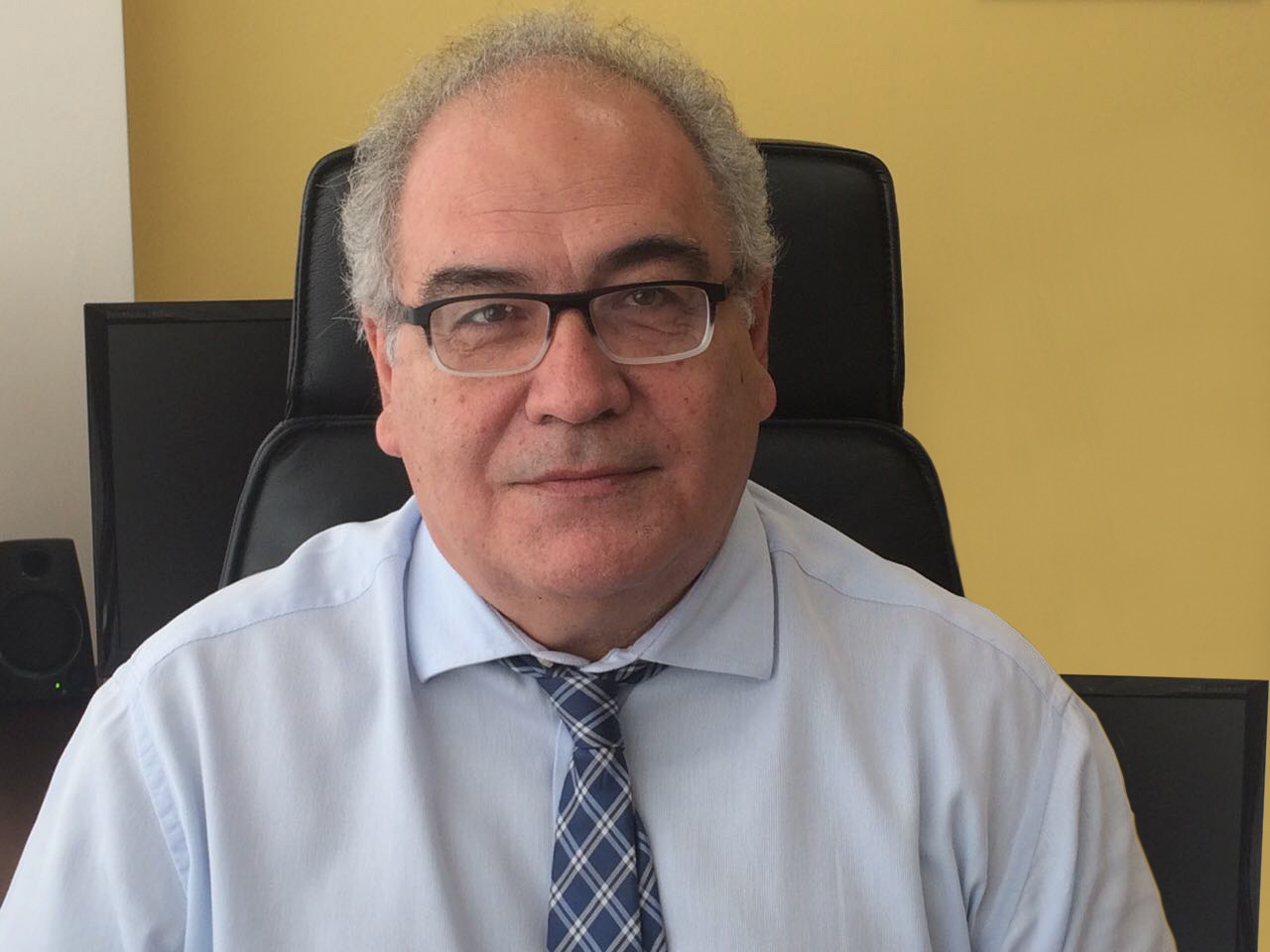 Dr. Dimitrios Emmanouloudis is a Professor at Department of Forestry and Natural Environment of IHU, Greece. He is the director of the Laboratory of Mountainous Water Management and Control & of Laboratory of Geology and Petrography. He holds a PhD degree in Forest Engineering from the Forestry Department of Aristotle University of Thessaloniki (1990) while he also made post doctoral research at Universidad Politecnica de Madrid, on erosion measurement techniques (2003). He is a Forester-Hydrologist with specialized knowledge on estimating the degradation of soils by erosion, the prevention of natural disasters on natural land ecosystems as well as in the study of factors that impact natural disasters using modern technologies. He is the main author or co-author of four books: («Evolution, Monitoring, Simulation, Management and Remediation of the Geological Environment and Landscape», WITpress Southampton, Boston, «Preventing, Monitoring and Confronting Debris Flow phenomena» WITpress Southampton, Boston, «Environmental Education Courses with Emphasis on Rhodopes Complex», Emattech, Euro-Mediterranean Torrents: Case Studies on Tools that can Improve their Management, Nova Publishers USA). He was also the coordinator of 12 international projects financed from International organizations like E.U., UNESCO, Hellenicaid etc. The total budget of the above mentioned projects is over 5.000.000 Euros. He has more than 60 publications, in various international journals with SCI index, congresses and conferences. He is also a member of the editorial board of the Journal of Engineering Science and Technology Review (Jestr) and of many scientific organizations including International Union of Forest Research Organizations (IUFRO), Inernational Association of Hydrological Sciences (IAHS), Ιnternational Comission on Continental Erosion (ICCE), International Committee on Tracers (ICT), International Association of Hydraulic (IAHR) and European Water Research Association (EWRA). He holds also the titleof “Ingeniero de Montes de Honor”, appointed from Universidad Politechnica de Madrid (2011). Recently (June of 2016), appointed by UNESCO as Chair Holder of UNESCO chair CON-E-ECT, which is dealing with “Conservation and Ecotourism of Riparian and Deltaic Systems.
Dr. Dimitrios Emmanouloudis is a Professor at Department of Forestry and Natural Environment of IHU, Greece. He is the director of the Laboratory of Mountainous Water Management and Control & of Laboratory of Geology and Petrography. He holds a PhD degree in Forest Engineering from the Forestry Department of Aristotle University of Thessaloniki (1990) while he also made post doctoral research at Universidad Politecnica de Madrid, on erosion measurement techniques (2003). He is a Forester-Hydrologist with specialized knowledge on estimating the degradation of soils by erosion, the prevention of natural disasters on natural land ecosystems as well as in the study of factors that impact natural disasters using modern technologies. He is the main author or co-author of four books: («Evolution, Monitoring, Simulation, Management and Remediation of the Geological Environment and Landscape», WITpress Southampton, Boston, «Preventing, Monitoring and Confronting Debris Flow phenomena» WITpress Southampton, Boston, «Environmental Education Courses with Emphasis on Rhodopes Complex», Emattech, Euro-Mediterranean Torrents: Case Studies on Tools that can Improve their Management, Nova Publishers USA). He was also the coordinator of 12 international projects financed from International organizations like E.U., UNESCO, Hellenicaid etc. The total budget of the above mentioned projects is over 5.000.000 Euros. He has more than 60 publications, in various international journals with SCI index, congresses and conferences. He is also a member of the editorial board of the Journal of Engineering Science and Technology Review (Jestr) and of many scientific organizations including International Union of Forest Research Organizations (IUFRO), Inernational Association of Hydrological Sciences (IAHS), Ιnternational Comission on Continental Erosion (ICCE), International Committee on Tracers (ICT), International Association of Hydraulic (IAHR) and European Water Research Association (EWRA). He holds also the titleof “Ingeniero de Montes de Honor”, appointed from Universidad Politechnica de Madrid (2011). Recently (June of 2016), appointed by UNESCO as Chair Holder of UNESCO chair CON-E-ECT, which is dealing with “Conservation and Ecotourism of Riparian and Deltaic Systems.
Dr. George N. Zaimes is the Deputy Chair of the UNESCO Chair Con-E-Ect for the Conservation and Ecotourism of Riparian and Deltaic Ecosystem that is hosted at the Department of Forestry and Natural Environment (IHU), Greece. He is also an Assistant Professor in the Management of Mountainous Water, Riparian Areas and Geomorphology of the Department of Forestry and Natural Environment of IHU and an Associate with School of Natural Resources and Environment, University of Arizona, Tucson, USA. Dr. Zaimes has been working on riparian ecosystems close to two decades with experiences from the United States, Greece, Spain, Turkey, Romania and other countries of the world. He is also been teaching graduate and undergraduate courses regarding environmental issues since 2000 in the United States, Greece, Germany and Spain. He received his PhD in the interdisciplinary Water Resources Program from Iowa State University, Ames, USA. He also received his Bachelor and MSc from Iowa State University from the Departments of Forestry, and Natural Resources Environment and Management, respectively. Finally, he has a Ptyhio from Department of Forestry, Kavala Institute of Technology, Greece. In the past he was Vice-Director of the MSc program Management of Water Resources in the Mediterranean of the Department of Forestry and Natural Environment Management, EMaTTech. His main research interests are riparian areas management, conservation and restoration, watershed and stream management and restoration, climate change and riparian areas, climate change and the hydrological cycle, hydrogeomorphology, ecohydrology, erosional process, hydrology, ecotourism, water pollution, non-point pollutants, urbanization and riparian areas, urbanization and water quality, urbanization and climate change, conservation practices for soil protection, bioengineering techniques, management and control of mountainous water, flood management, drought management, hydrological modeling urbanization and streams, management of terrestrial ecosystems, management of semi-aquatic ecosystems, management of urban natural ecosystems, surface, rill gully and stream bank erosion and protected areas. He has been managing projects for more than 10 years and has received several grants from funding agencies from the United States, European Union and Greece. Overall he has been involved in more than 25 research funded projects and has established collaborations with institution from more than 30 countries and in four continents. Finally he has been very active in publishing as he is the author of several book chapters, numerous publications in scientific journals (more than 45), while also presenting to more than 70 conference worldwide and being a reviewer in more than 30 SCI scientific journals.

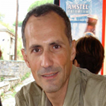

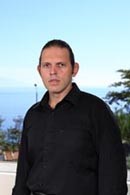
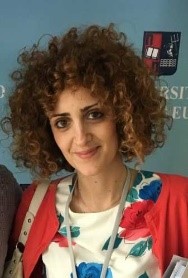
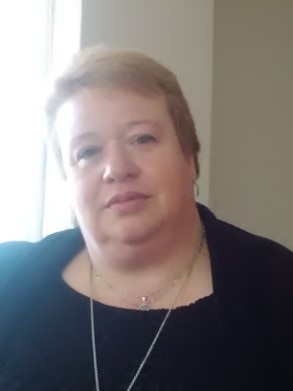
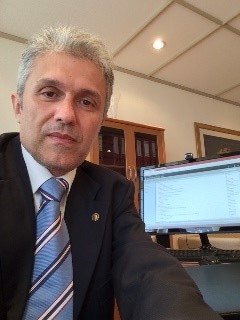
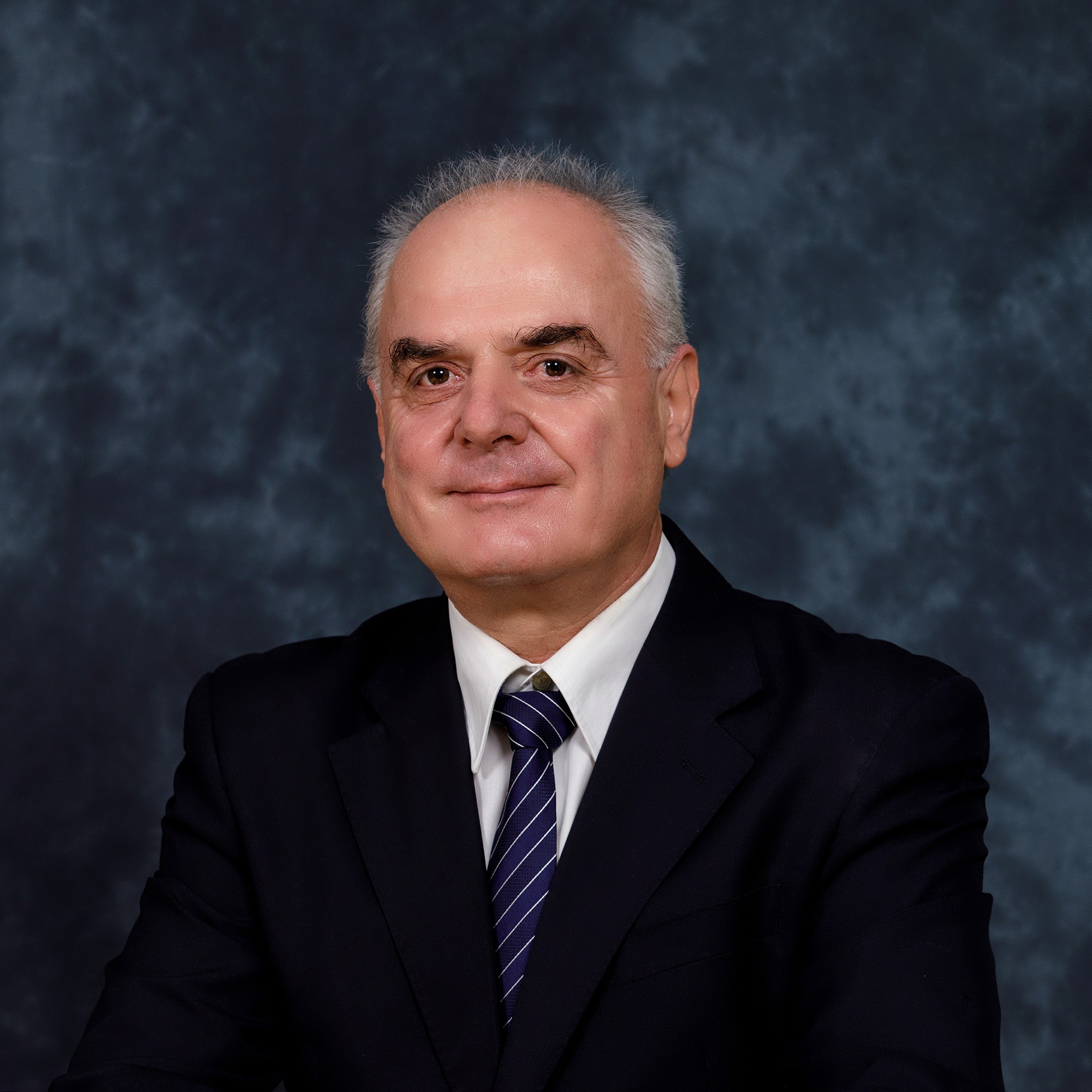




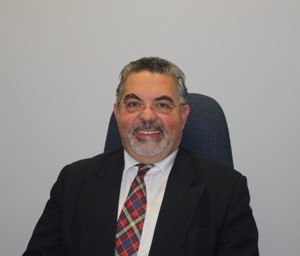


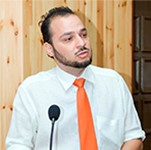




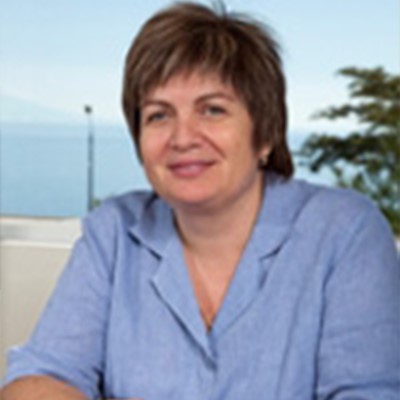

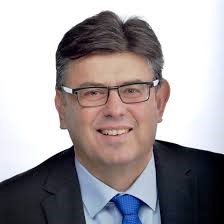
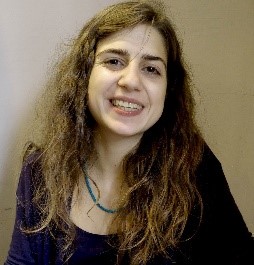
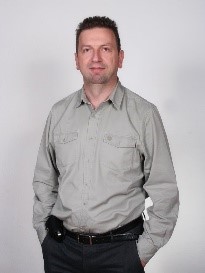
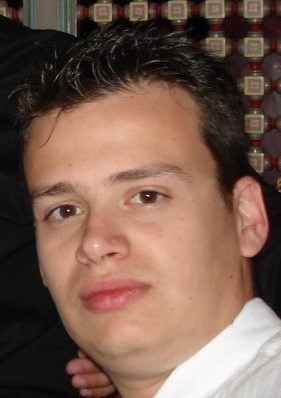
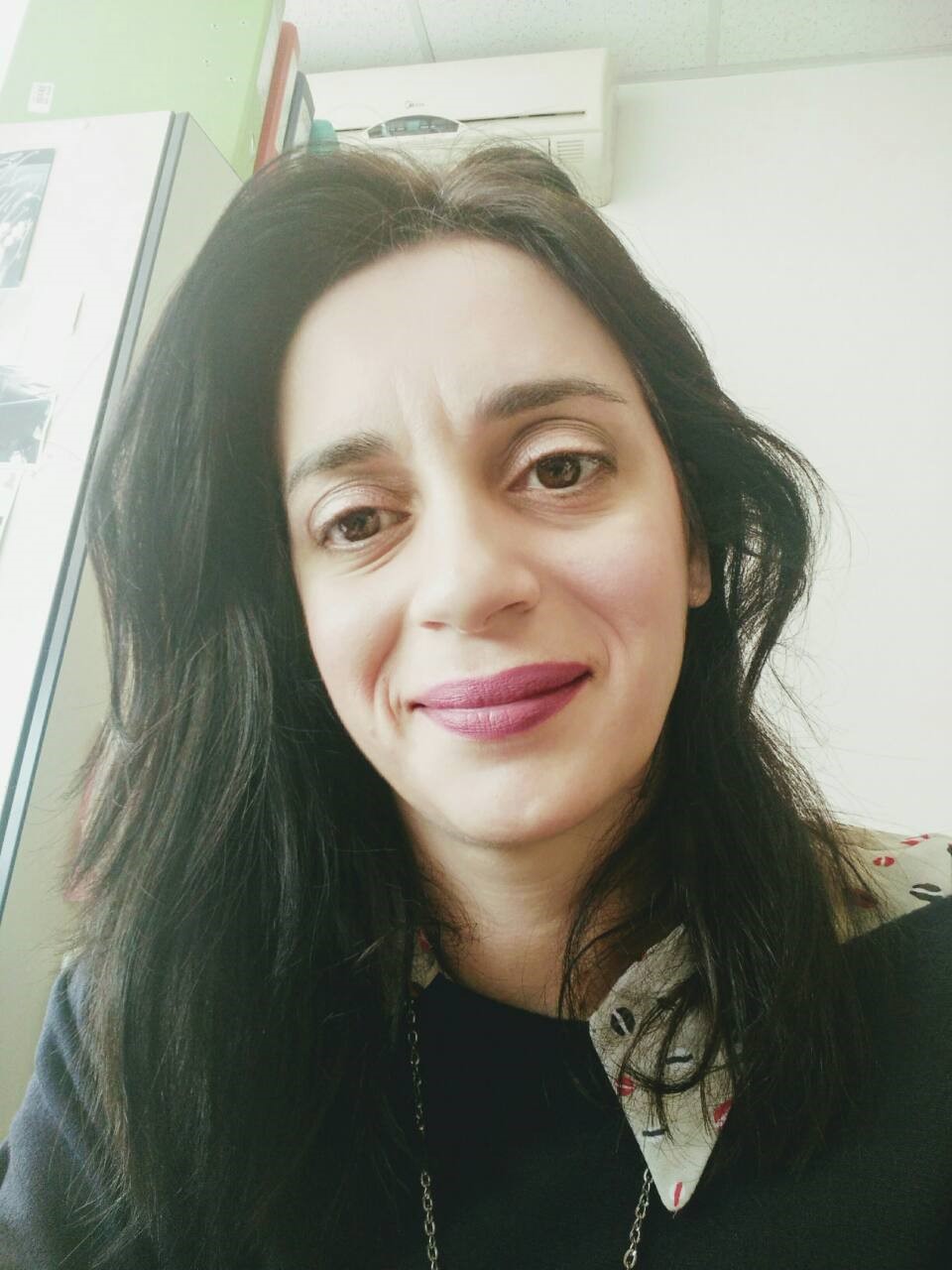
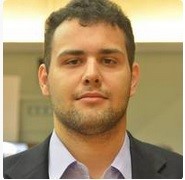

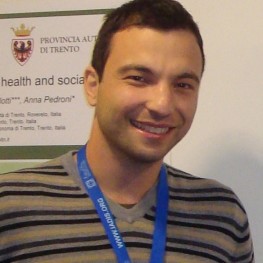



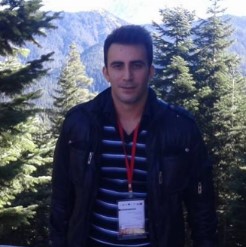
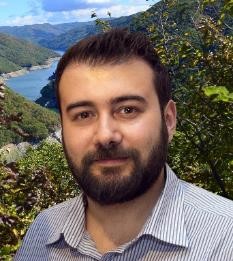
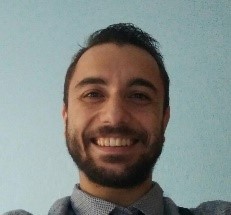

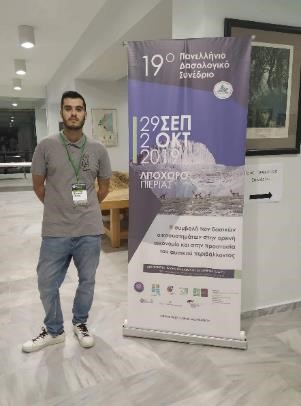
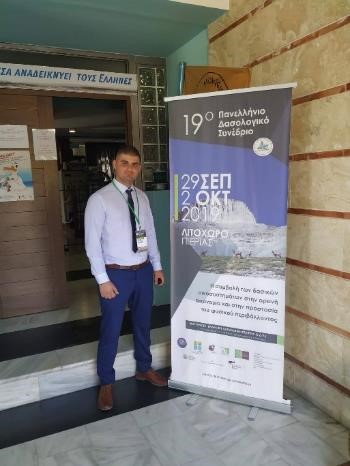



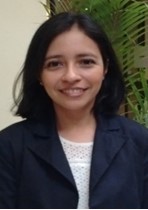


The “Con-E-Ect” UNESCO Chair is located in Eastern Macedonia and Thrace, a region of a unique, in Europe, ecosystem which spreads over an area of 200 km and comprises five major riparian and deltaic ecosystems. The objective of the Chair is to join forces with national, regional and international stakeholders, in order to elaborate an International Common Strategy Framework for the Conservation and Ecotourism of Riparian and Deltaic Ecosystems. The Framework’s targets will be accomplished through promotion of research by collecting and assessing data, dissemination of research findings, training and awareness-raising activities addressed to various target groups, so that, finally, all stakeholders will harmonize their actions towards the sustainable management of the riparian and deltaic ecosystems via the development of ecotourism. The creation of this Chair, dealing with crucial humanity issues, will be of immense importance not only for the Balkan region, but also for the international scientific community.
The Network for Environment, Culture and Tourism in Asia-Pacific Region (NECTAR) that involves the following principles:
